Because of our tragic history of slavery, Americans of African descent have often found it difficult to trace their ancestors further back than a few generations. They often run into “brick walls” due to the absence of standard genealogical resources and the way in which records were kept over the centuries. Many Americans (especially those of us who are white) are familiar, for instance, with state and federal census records when we conduct genealogical research; with a little digging, we can find the names of all members of a certain ancestor family, at a certain address. However, an African American searching the same census (from the Civil War and earlier) may more likely find only the white family’s name and lists of “Negroes” in that household with genders and approximate ages – no names.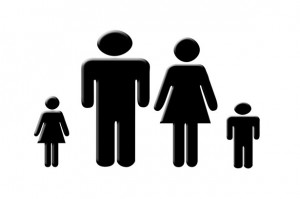
Here, in the spirit of Black History Month, we will explore several initiatives that have emerged in the past several years that can enable African Americans and the descendants of African slaves to trace their family histories.
10 Million Names Project
The 10 Million Names Project of the New England Historic Genealogical Society/American Ancestors was launched in August 2023. The Project is “a collaborative project dedicated to recovering the names of the estimated 10 million men, women, and children of African descent who were enslaved in pre- and post-colonial America (specifically, the territory that would become the United States) between the 1500s and 1865.” It “seeks to amplify the voices of people who have been telling their family stories for centuries, connect researchers and data partners with people seeking answers to family history questions, and expand access to data, resources, and information about enslaved African Americans.”
There are a number of ways that the Project assists researchers:
- Chat with a genealogist (free service). An expert staff member at NEHGS can help explain how to use a particular website or resource; answer brief local history questions; define an unfamiliar term or phrase in a record; or make recommendations for where to find records.
- The Project “is building a free, public-facing, searchable online collection of family history documents,” for which they are seeking help from the general public. They have developed a questionnaire to help with sharing information about the families of enslaved persons or persons who enslaved others.
- A number of databases are now available for researchers as well as other sites.
Many Americans of all stripes are long acquainted with the popular PBS genealogy and genetics series, Finding Your Roots, hosted and produced by Harvard professor Henry Louis Gates, Jr. NEHGS provides research support and filming locations for the show. While it has generally focused on well-known people, the 10 Million Names Project (for which Gates serves on the Advisory Board) is a significant way by which “average” people can dig into their family histories.
Our Black Ancestry
Our Black Ancestry is “a non-profit organization dedicated to providing resources for African American genealogical research, preserving historic materials and properties, and promoting healing of wounds that are the legacy of slavery.” 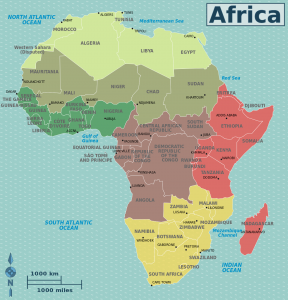 The organization works to reunite people of African descent by combining the work of African American researchers with that of descendants of those who owned slaves. While the group’s website is available to anyone, the $25 membership fee provides members with a personal profile page, access to surname and DNA databases – which number over 12 million people who had been kidnapped in Africa – and resource links. The group’s Founder is Sharon Leslie Morgan, a genealogist, writer and multicultural marketing expert, and the Vice President of Our Black Ancestry is Morgan’s son, Vincent Scott Morgan.
The organization works to reunite people of African descent by combining the work of African American researchers with that of descendants of those who owned slaves. While the group’s website is available to anyone, the $25 membership fee provides members with a personal profile page, access to surname and DNA databases – which number over 12 million people who had been kidnapped in Africa – and resource links. The group’s Founder is Sharon Leslie Morgan, a genealogist, writer and multicultural marketing expert, and the Vice President of Our Black Ancestry is Morgan’s son, Vincent Scott Morgan.
AfriGeneas
Sharon Morgan is also involved with AfriGeneas. Helpfully, the website has provided the derivation of the site’s name and how to pronounce it: “AfriGeneas is derived from African American Genealogy Buddies. It’s pronounced: A · fri · GEE · nee · as.” The site is “devoted to African American genealogy, to researching African Ancestry in the Americas in particular and to genealogical research and resources in general.” Their vision is “to find and document the last slaveholder and the first African in each family.”
Isotope Mapping
A team of anthropologists at the University of California, Santa Cruz, led by Dr. Vicky Oelze, is using isotope mapping of strontium 86 and 87 in DNA samples to discover the places of origin of enslaved Africans. The mapping project began when a street project in Charleston, SC, uncovered human bones. 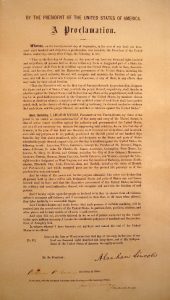 The bones were identified as belonging to 36 18th-century enslaved Africans. The late Ade Ofunniyin, a cultural anthropologist, nonprofit director and grandson of a renowned Charleston blacksmith, successfully lobbied the city to reinter these “Ancestors,” and his efforts led to the establishment of the Anson Street African Burial Ground project. The project was the moving force behind securing permission of Charleston’s African American citizens to have the DNA extracted from the “Ancestors’” remains and analyzed by Oelze’s team. The analysis resulted in a map of Angola: the likely origin (as opposed to the more vague designation of “sub-Saharan Africa”) of at least some of the enslaved Africans of Charleston. Meanwhile, the Anson Street African Burial Ground project is creating memorials to the “Ancestors” at the site where the remains have been reinterred.
The bones were identified as belonging to 36 18th-century enslaved Africans. The late Ade Ofunniyin, a cultural anthropologist, nonprofit director and grandson of a renowned Charleston blacksmith, successfully lobbied the city to reinter these “Ancestors,” and his efforts led to the establishment of the Anson Street African Burial Ground project. The project was the moving force behind securing permission of Charleston’s African American citizens to have the DNA extracted from the “Ancestors’” remains and analyzed by Oelze’s team. The analysis resulted in a map of Angola: the likely origin (as opposed to the more vague designation of “sub-Saharan Africa”) of at least some of the enslaved Africans of Charleston. Meanwhile, the Anson Street African Burial Ground project is creating memorials to the “Ancestors” at the site where the remains have been reinterred.
Roots to Glory
Roots to Glory was founded in 2012 “with the dream of reuniting African families and returning Africans in the Diaspora to the continent.” Founder and President Ada Anagho Brown, a native of Cameroon, arranges personalized tours – true pilgrimages – that combine experiences of local hospitality with music, food, and rich history, especially throughout West and Central Africa. Roots to Glory partners with the African Royal DNA Project, a global network that uses DNA testing of Kings, Queens and other family members living in Africa to re-connect them with Africans in the Diaspora. Hundreds of travelers of African descent have been movingly reunited with families in Africa over the past decade.
NMAAHC
The National Museum of African American History and Culture (NMAAHC), a museum of the Smithsonian Institution in Washington, DC, is not only mounting significant exhibits related to African American history but is also helping the descendants of enslaved Africans in a number of ways, both in-person and virtually. NMAAHC contains a number of centers, focusing on a wide array of elements of black life. One of these centers, the Robert Frederick Smith Explore Your Family History Center (designated as the Center for the Digitization and Curation of African American History on the website) “helps people begin their family history journey and learn the basics of researching African American genealogy.” On certain days, in-person visitors can join in group genealogy sessions to explore the basics of using genealogy databases, investigate public documents, and learn how to navigate US federal census, military and vital records. Importantly, seekers can obtain images of the documents they locate to share with others. Researchers interested in their family histories can also participate in hourlong, one-on-one virtual genealogical sessions.
Conclusions and Social Justice Implications
White Americans who conduct genealogical research also face many challenges when trying to trace their family histories. Obstacles include: adoption, illegitimate births, destroyed records, inaccuracies in available records, backgrounds in countries such as Norway that have confusing naming protocols, language barriers, terminology, families in which many generations have the same name, different spelling conventions, criminal behavior of an ancestor resulting in an ancestor fleeing a jurisdiction, and others.
What is significantly different between what white researchers face and what African American researchers face is that “…data about enslaved people of African descent and their descendants was deliberately obscured, altered, or simply unrecorded in the first place. The institution of slavery itself depended upon the erasure or interruption of genealogical knowledge.” According to Lisa Crawley at NMAAHC, “enslaved African Americans prior to the 1870 census mainly appear on the slave schedules of 1860 and 1850,” often without names.
The projects we have highlighted here are among the rich sites, organizations and initiatives that have emerged in recent years to correct the historical and genealogical record of not only individuals and families but also of our wider society. The importance of these resources is significant at a number of levels:
- Equality, justice and fairness.
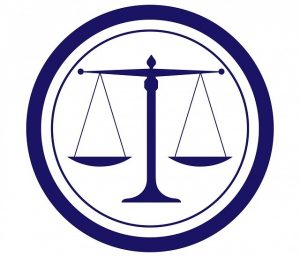 If we are serious about our national values of equality, justice and fairness for every US citizen, we must ensure that all records that would normally be made available to the (white) majority must also be made available to those who do not belong to that majority. This applies to records kept by federal sources and thus supported by taxpayer dollars but also to any organizations that are required to abide by federal, state and local laws.
If we are serious about our national values of equality, justice and fairness for every US citizen, we must ensure that all records that would normally be made available to the (white) majority must also be made available to those who do not belong to that majority. This applies to records kept by federal sources and thus supported by taxpayer dollars but also to any organizations that are required to abide by federal, state and local laws. - Truth. If we Americans are serious about the truth about our national history, we should be glad to deepen and broaden our knowledge about our families and ancestors. Contrary to the wrong-headed white supremacist notion that illuminating the history of non-whites somehow causes harm to whites or is a way to “replace” whites and white culture, the evidence clearly demonstrates that enslaved Africans, their descendants and other people of color have contributed a tremendous amount to our country in every way. One notable instance: enslaved persons were involved at almost every stage of the construction of our beloved White House.
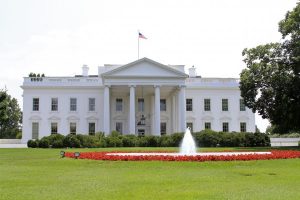
- Education. Our education is incomplete without knowledge of all of our people. School children should know not only about their own backgrounds – of which they can often be rightly proud – but also about others’ backgrounds. Such knowledge can encourage empathy, understanding, cooperation, seeking the common good, and other positive values vital to the survival of our democratic republic.
- Public support of research. There are often legitimate questions as to how tax dollars are being spent on research endeavors. Some university and government projects often seem, at first glance, to be unduly esoteric and irrelevant to people’s actual lives. A study like that of Dr. Oelze, however, while it has begun with a specific population and city, has far-reaching implications for our nation. “Her goal is to create maps using a variety of isotopes. … Over time, [her team’s] findings [which are funded in part by a federal grant] will help form a more complete picture of the entire trans-Atlantic slave trade. Historians have long debated how deeply the trade penetrated into the interior of the continent.
 Soon researchers will be able to pair isotope data with other information like shipping records to trace a person’s likely path from the African interior to an Atlantic port, and then to destinations throughout the Americas. All of that will add up to a remarkably precise – and personal – view of who enslaved individuals really were.”
Soon researchers will be able to pair isotope data with other information like shipping records to trace a person’s likely path from the African interior to an Atlantic port, and then to destinations throughout the Americas. All of that will add up to a remarkably precise – and personal – view of who enslaved individuals really were.” - The richness of diversity. Learning about these genealogical and historical resources is not just for the African Americans that they might most directly affect. It is about all of us, and our rich national diversity. While those of us who are white may not use any of the databases, documents, courses, websites ourselves, because they do not directly apply to our own legacies, knowing about them help us appreciate this richness and may well give us an opportunity to point a fellow citizen toward something wonderful with which he or she may not be familiar.
As this Black History Month draws to a close, let us continue our national quest of a “more perfect union.”
Resources
Cummings-Yeates, Rosalind. “Home Coming: Ada Anagho Brown connects African Americans with the lands and cultures their forebears were forced to leave behind,” Smithsonian Magazine, Vol. 54, No. 07 (January-February 2024) 36-47 (“A Journey to Discover an African Homeland”)
Forson, Tracy Scott. “What Genealogical Records Taught Me About My Family,” Smithsonian Magazine Vol. 54, No. 07 (January-February 2024).
